M.Sc. in Environmental Management offers diverse careers, sustainability impact, global relevance, and ethical leadership.
Future Scope & Benefits: M.Sc. in Environment Management Course
The field of environmental management is rapidly evolving, driven by increasing global concerns about sustainability, climate change, and the conservation of natural resources. An M.Sc. in Environmental Management equips graduates with the knowledge and skills to address these complex environmental challenges, making them well-prepared for a wide range of career opportunities. Below, we explore the future scope and the numerous benefits of pursuing an M.sc. in EM program.
1. Thriving Career Opportunities:
Graduates of M.Sc. in Environmental Management programs have access to a diverse array of career paths. These include roles in both the public and private sectors, as well as opportunities in non-profit organizations and research institutions. Some of the career options include:
Environmental Consultant: Advising organizations on environmental regulations, sustainability practices, and pollution control measures.
Environmental Manager: Overseeing and implementing environmental policies and practices within organizations.
Sustainability Analyst: Evaluating the environmental impact of business operations and developing strategies for sustainable practices.
Government Environmental Specialist: Working with government agencies to develop and enforce environmental regulations and policies.
Conservation Scientist: Focusing on the protection and management of natural resources and ecosystems.
Climate Change Analyst: Assessing the impact of climate change, developing mitigation strategies, and monitoring climate-related initiatives.
Environmental Educator: Teaching and raising awareness about environmental issues in educational institutions or through outreach programs.
2. Sustainability Focus:
The global shift towards sustainability and environmental responsibility has created a high demand for professionals who can guide organizations in adopting eco-friendly practices. An M.Sc. in Environmental Management positions graduates to lead these efforts and contribute to a sustainable future.
3. Interdisciplinary Knowledge:
The program provides a multidisciplinary education, covering areas such as environmental science, policy, law, economics, and ethics. This diverse knowledge base equips graduates to tackle complex environmental challenges from various angles.
4. Environmental Advocacy:
Graduates often find their work to be personally fulfilling as they advocate for environmental protection, conservation, and the well-being of ecosystems and communities.
5. Global Relevance:
Environmental issues are not confined by borders. Graduates of environmental management programs can work on global initiatives, collaborate with international organizations, and contribute to worldwide sustainability efforts.
6. Research Opportunities:
For those interested in research, the program provides a strong foundation for pursuing advanced degrees (Ph.D.) and conducting groundbreaking research in environmental science and management.
7. High Demand Professions:
The demand for professionals with expertise in environmental management is on the rise as organizations seek to navigate complex environmental regulations and address sustainability concerns.
8. Competitive Salaries:
Salaries for environmental management professionals are competitive, and experienced individuals often have the potential for high earning potential, especially in roles related to sustainability and compliance.
9. Environmental Stewardship:
Graduates play a crucial role in environmental stewardship, working to protect ecosystems, conserve resources, and minimize the negative impact of human activities on the planet.
10. Mitigating Climate Change:
As climate change remains a pressing global challenge, professionals in environmental management contribute to efforts to reduce greenhouse gas emissions, adapt to changing climate conditions, and develop sustainable practices.
11. Versatile Skills:
Graduates possess a versatile skill set that can be applied across various industries and sectors, including energy, agriculture, manufacturing, healthcare, and transportation.
12. Positive Impact on Communities:
Environmental management professionals often work on projects that directly benefit communities by improving air and water quality, enhancing public health, and preserving natural spaces for recreational and cultural activities.
13. Ethical and Responsible Decision-Making:
The program emphasizes ethical considerations in environmental decision-making, preparing graduates to make responsible choices that prioritize the planet's well-being.
14. Networking Opportunities:
Students have the opportunity to network with professors, fellow students, and industry professionals during their studies, building valuable connections for future career opportunities.
15. Adaptability and Innovation:
Graduates are equipped with the skills to adapt to evolving environmental challenges and drive innovation in sustainable practices and technologies.
16. Public and Private Sector Demand:
Environmental management professionals are sought after by both government agencies and private companies to ensure compliance with environmental regulations and promote sustainable operations.
17. Environmental Entrepreneurship:
Graduates with an entrepreneurial spirit can establish their own environmental consulting firms, sustainability startups, or eco-friendly product businesses.
18. International Opportunities:
Environmental issues are global, providing opportunities for graduates to work on international projects and collaborate with organizations worldwide.
 2 Years
2 Years
 Post Graduate
Post Graduate
 Agriculture
Agriculture
 Full Time
Full Time



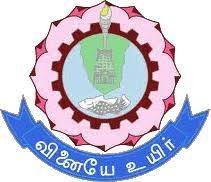



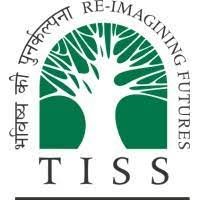

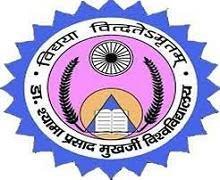

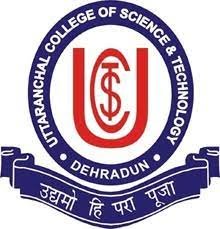




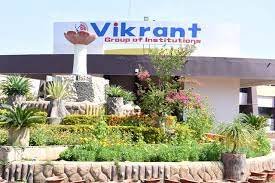




 back
back

